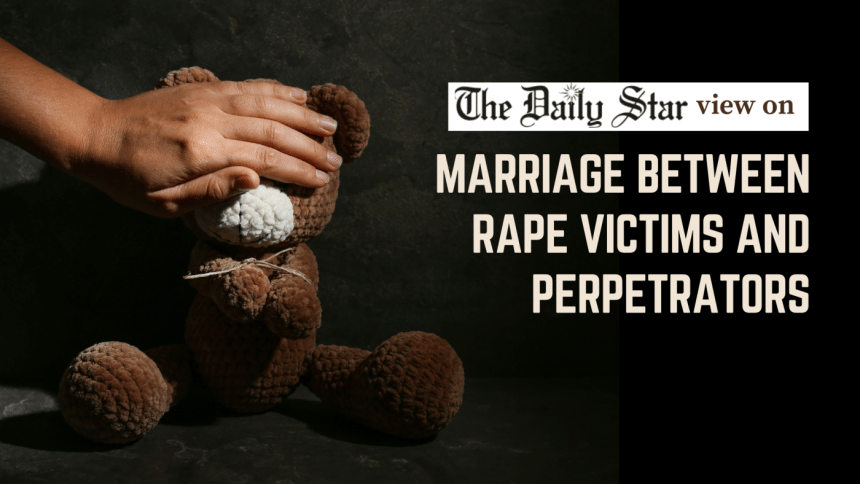Marriage as a cover-up for rape is not justice

It is alarming to learn of the incidents of rape victims being married off to their rapists, thus putting them at risk of continued abuse. Reportedly, accused rapists often seek to marry survivors as a means to evade legal consequences. While cases filed under the Women and Children Repression Prevention Act—including rape—cannot legally be settled outside court, such arrangements are frequently made across the country through village arbitration or family negotiations. Girls who are married to their alleged rapists through these informal settlements are often subjected to further abuse, divorce, or unstable marriages. The question is: why are such marriages taking place? Are we not, in effect, granting impunity to rapists through these arrangements?
Between 2002 and 2011, Prothom Alo said it had reported at least 20 cases in which rape survivors were married off to their accused rapists. Of these, 11 marriages ended due to physical and mental abuse, among other factors. In one case, the marriage continued, but the girl was subjected to ongoing violence. The remaining eight cases could not be tracked further. Additionally, over the past four years, Prothom Alo spoke with eight survivors and their families who had been married to their accused rapists. It was revealed that none of them were able to sustain a family life. Moreover, they struggled to obtain legal recognition for children born as a result of rape. In one tragic instance, a survivor was murdered after the marriage.
Some families said they agreed to such arrangements out of fear of social stigma. Some parents of adolescent and young girls who became pregnant due to rape said there was "no option but marriage." In some instances, these marriages were even formalised in court, with magistrates present. The recent incident of singer Mainul Ahsan Noble is a case in point. Noble, who was arrested in a rape case last month, married the victim on June 20 with court permission.
These incidents are not only shocking but also unacceptable. Rape is a criminal offence, and rapists must face due punishment under the law—not be rewarded with marriage. Sadly, our legal system is failing not only to convict rapists but also to protect survivors from further abuse and harassment through such marriages. Under no circumstances can forcing or coercing a survivor to marry their rapist be considered a solution. The state must take urgent steps to prevent such marriages and protect survivors from further trauma, injustice, and cruelty.


 For all latest news, follow The Daily Star's Google News channel.
For all latest news, follow The Daily Star's Google News channel. 










Comments